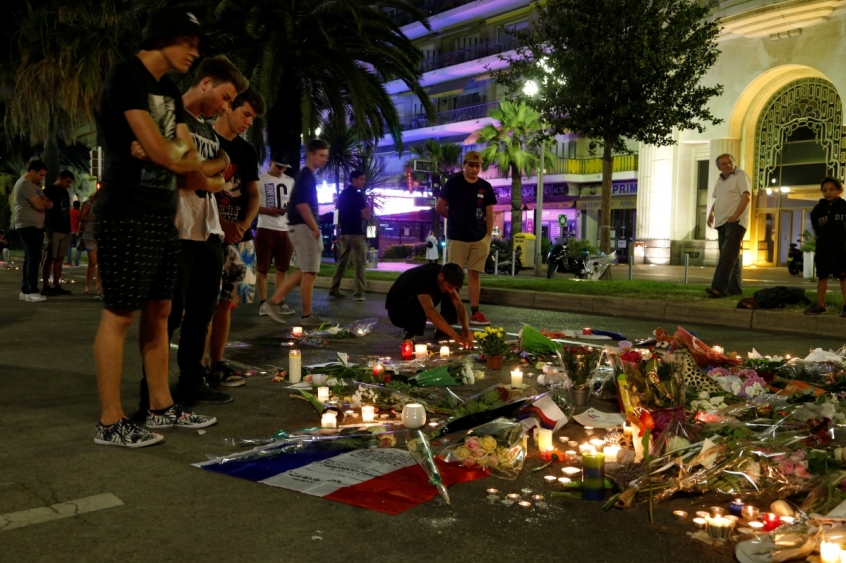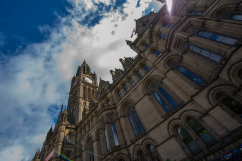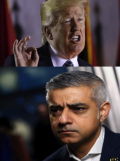
Hannah Arendt's famous phrase 'the banality of evil' has itself become so well-worn it's easy to miss the powerful point she was making.
The German-American philosopher, who became an American citizen, famously sat through the trial of Nazi Adolf Eichmann. In the book that she wrote about the experience, 'Eichmann in Jerusalem' the subtitle was 'A Report on the Banality of Evil.'
In this totemic work, Arendt described how Eichmann and many other Nazis weren't uniquely evil. Instead she says, 'The sad truth is that most evil is done by people who never make up their minds to be good or evil.'
The banality of evil is not only a concept that helps us think about its perpetrators. It also helps us to think about the effect of evil events on us, as those looking on. Which brings us to Barcelona.
In the beautiful Catalonian city yesterday, an evil so horrific was visited upon tourists and residents that it is almost indescribable. But describe it we must. A van careered into pedestrians, on the famous street Las Ramblas. Thirteen were killed and over 100 injured. Another attack south of the city saw a person killed and another six injured. An explosion at a nearby house and another vehicle incident may also be linked.
By any measure these attacks are evil. They represent the wanton destruction of life by people who had no right to take it. Literally thousands of friends and family members will be mourning people who didn't need to die, people who were enjoying a holiday or going about their daily business. Thousands more will be concerned about those injured and traumatised – some of whose lives will never be the same again.
That all this happened in Barcelona, an almost impossibly lovely city, makes it all the more incongruous. Barcelona, home of Gaudi's dizzying architecture and the astonishing Sagradia Familia, home of arguably the world's most famous and aesthetically pleasing football team, home of music, food and culture to rival any place on earth.
But maybe Arendt's insight on the banality of evil was even more powerful than as an analysis of the perpetrator. Maybe those of us who can only watch on in horror can fall victim to the banality of evil too.
Nice, Berlin and London have all suffered similar vehicle attacks in recent months. Vile Islamist assaults have visited Manchester, Madrid, Istanbul and Paris. Further afield, the people of Pakistan, Egypt, India, Iraq, Syria and many other places have suffered almost untold misery at the hands of radical extremist Muslims.
Yet last night and today, the response has been quite muted. On my Twitter feed, which of course isn't a representative sample, there has been some reaction. It has seemed quiet in comparison to previous tragedies, though. I noticed far fewer solidarity posts from people overseas for Barcelona.
Maybe it's just the time of year, with more people away and taking a break from social media. Maybe we're just as concerned as ever but seeking to avoid trite sentiments. Maybe we're increasingly determined to deprive the narcissist terrorists of the oxygen of publicity.
But maybe it's because we really are experiencing the banality of evil. Is it possible we could really be getting used to the idea of mass murder on our streets? This is a deeply disturbing development if so. We cannot ever allow ourselves to get used to such a perverse situation. Shakespeare understood well the risk of getting too used to evil. Macbeth is the perfect illustration, saying, 'I have supped full with horrors. DIreness, familiar to my slaughterous thoughts, cannot once start me.' In other words, he is no longer shocked by evil.
In Jeremiah 6, we read of priests and prophets who, 'have treated the wound of my people carelessly, saying, 'Peace, peace', when there is no peace.'
In Barcelona yesterday, I'm sure it felt as though there is no peace. Likewise in Yemen, Iraq, Syria, Venezuela and many other troubled parts of the world, there is little peace. Let's not fall into the trap of thinking this is the way the world is or has to be.
There isn't peace in these places far afield and there is also violence much closer to home, in Charlottesville for one. If we pretend there is peace, or if we allow ourselves to be lulled into seeing only banality where there is evil, we're giving up when instead we should be deeply disturbed. This deep fissure in the shalom of the universe as God intends grieves him and it should grieve us. In the words of the Kentucky farmer and poet Wendell Berry, 'There is much good work to be done by every one of us and we must begin to do it.'
Follow Andy Walton on Twitter @waltonandy
















